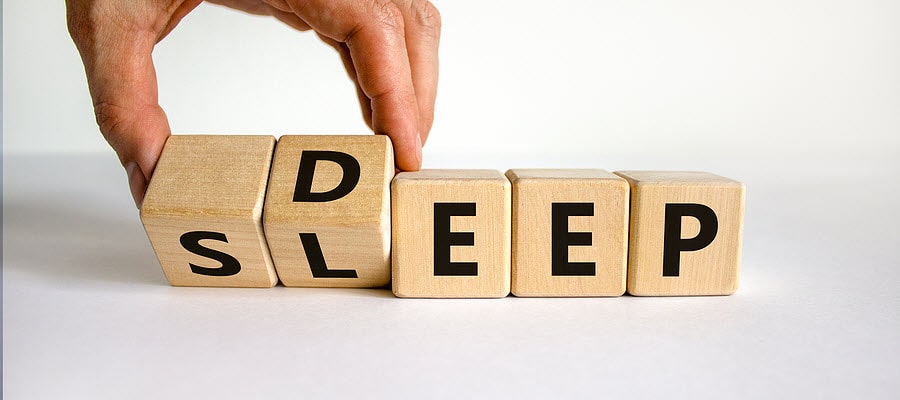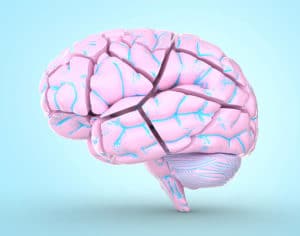Table of Contents
Magnolia Bark (Magnolia officinalis, Magnoliae cortex, Houpo, Chua houpu) has been traditionally used in Chinese and Japanese medicine for the treatment of depression, anxiety, neurosis, and related neurological disorders.
Clinical research in the last couple of decades demonstrate how Magnolia Bark as a nootropic supplement can be so effective for taking care of what our ancestors already knew. By reducing anxiety, depression, pain, symptoms of epilepsy, and other neurocognitive disorders including Alzheimer’s.
The polyphenols found in Magnolia Bark include magnolol and honokiol which provide its nootropic benefits.
As a nootropic, Magnolia Bark is used primarily to lower stress and promote a good night’s sleep.
Magnolia Bark helps:
- The Magnolia Bark compound honokiol appears to be as effective as diazepam for relieving anxiety with fewer side effects.
- Magnolia Bark interacts with the adenosine A1 receptor, dopamine transporter, dopamine D5 receptor (antagonist), serotonin receptors 5-HT1B and 5-HT6 (antagonist), GABAA receptors, hippocampus acetylcholine release, and modulates serotonin activity.[i] And is an acetylcholinesterase (AChE) inhibitor.[ii]
- The compounds honokiol and magnolol found in Magnolia Bark have been shown to significantly decrease β-amyloid (Aβ)-induced neuronal death associated with Alzheimer’s Disease.[iii]
Overview
Magnolia Bark (Magnolia officinalis) comes from the Magnolia tree originally found in Southeast Asia, Eastern North America, Central America and the Himalayas. Its flowers are fragrant with white petals.[iv]

Magnolia Bark was first recorded in the “Shennong Herbal Classic” from the Qin and Han Dynasty around 221 B.C. to 220 A.D. It was used to anxiety, asthma, depression, gastrointestinal disorders, headache, and more.[v]
More than 250 different chemical compounds have been identified in the flowers, bark, and leaves of the Magnolia. But most of its therapeutic potential comes from the bark and roots.
The Magnolia bud is almost exclusively used to treat sinus congestion and sinus headache.[vi]
Magnolia Bark is harvested in the spring from April to June. The root and branch bark are boiled in water and set aside until it turns a purplish brown color. This concoction is then steamed, rolled and dried.
Early chemical studies identified two main active ingredients in the Magnolia Bark: magnolol and honokiol. These neolignanes are the main active components providing its nootropic benefit. [vii]
Other bioactive compounds from Magnolia Bark are the alkaloids benzyl-tetrahydroisoquinoline and aporphine which are found in the leaves, branches and bark. These alkaloids may also have antispasmodic and muscle relaxant benefits.[viii]
Magnolia Bark has been traditionally used to treat diabetes, atherosclerosis, Alzheimer’s disease, gastrointestinal disorders, asthma, and microbial infections.
Studies in human cells indicate a growth inhibitor effect of honokiol and magnolol on human melanoma and carcinoma cells. There is increased interest in developing a novel analogue for chemotherapy derived from Magnolia Bark.[ix]
 How does Magnolia Bark work in the brain?
How does Magnolia Bark work in the brain?
Magnolia Bark boosts brain health and function in several ways. But two in particular stand out.
- Magnolia Bark is anti-anxiety. Magnolia Bark is known for its anti-anxiety benefits as an alternative to benzodiazepines.[x]
Honokiol found in Magnolia Bark has been shown to act on the GABAA receptor subunit α-2 which provides some of its anti-anxiety benefits.[xi]
- Magnolia Bark as an antidepressant. Main-stream psychiatric medicine often treats depression using SSRI’s. Which affects serotonin reuptake in the brain.
Traditional Chinese medicine uses Magnolia Bark to treat depression instead. Studies have demonstrated the honokiol and magnolol found in Magnolia Bark help prevent decreases in serotonin in the frontal cortex, hippocampus, striatum, hypothalamus, and nucleus accumbens.
The combination of honokiol and magnolol also normalize hypothalamic-pituitary-adrenal (HPA) hyperactivity. And induce reductions in platelet activity by upregulating the cAMP pathway.
The results of these studies show how Magnolia Bark provides its potent anti-depressant benefits.[xii]
There is also growing evidence that inflammation in the brain contributes to depression. Here again, Magnolia Bark has been shown to significantly reduce levels of pro-inflammatory cytokines; tumor necrosis factor α (TNF-α), interleukin 1β (IL-1β), and interferon γ (IFN-γ).
Reducing inflammation in the brain may affect tryptophan metabolism which increases serotonin. Providing another way Magnolia Bark as a naturally effective option for dealing with depression.[xiii]
How things go bad
Chronic stress, anxiety, poor blood flow and free radicals (oxidative stress) can damage your brain. And one of the ways this manifests is memory loss.
It comes as no surprise that people with memory loss experience higher rates of anxiety and depression.
↓ Chronic stress reduces memory capacity
↑ inflammation kills brain cells
↓ Free radicals destroy neurons and synapses
↓ Acetylcholine (ACh) levels decline
↓ Learning and memory decline
Magnolia Bark helps reduce inflammation, restores acetylcholine levels, and supports memory.
Magnolia Bark benefits
 Magnolia Bark taken as a nootropic supplement easily crosses the blood-brain barrier helping reduce oxidative stress in the brain and throughout the body.
Magnolia Bark taken as a nootropic supplement easily crosses the blood-brain barrier helping reduce oxidative stress in the brain and throughout the body.
Magnolia Bark is widely used to elevate mood, decrease pain, and improve immune health.
Magnolia Bark activates cannabinoid receptors in your brain. Cannabinoid receptors include CB1 and CB2.
CB1 receptor activation regulates memory, cognition, and motor control. Relieving pain, vomiting, reducing hyperexcitability in epilepsy, stimulating appetite, and euphoria.
CB2 receptor activation provides pain relief and reduces inflammation.[xiv]
Magnolia Bark helps reduce stress by suppressing adrenaline and maintaining healthy cortisol levels.
Studies have shown that honokiol works as effectively as the anti-anxiety drug Valium® (diazepam) without the associated side effects.[xv]
And Magnolia Bark extract helps prevent memory loss because of its anti-inflammatory effects in your brain.
How does Magnolia Bark feel?
Neurohackers report that supplementing with Magnolia Bark provides an anti-anxiety effect within minutes of taking it. Some users say it works as well as diazepine.
Most say they feel relaxed and ready to sleep after taking Magnolia Bark. Using it as a sleep supplement helps them fall asleep faster and stay asleep throughout the night.
But dosage is important. And many users say you will not get the benefits of Magnolia Bark if you don’t follow dosage recommendations.
Feelings of anxiety and depression can be reduced significantly with Magnolia Bark daily supplementation.
Most report that Magnolia Bark is a great way to quickly reduce stress.
 Magnolia Bark Clinical Research
Magnolia Bark Clinical Research
Most of the clinical research for Magnolia Bark are animal studies with very few conducted with humans.
Magnolia Bark is anti-anxiety
Magnolia Bark has long been used as an anxiolytic. Most users report a reduction in anxiety when using it as a supplement.
A 2013 review by researchers at Emory University in Atlanta found that the compound honokiol in Magnolia Bark interacts with the GABAA receptor. The same receptor targeted by anti-anxiety drugs like diazepam and without the side effects caused by benzodiazepines.[xvi]
Another study at the University of South Carolina School of Medicine reported that magnolol and honokiol enhanced both pre-synaptic and post-synaptic GABA transmission in hippocampus neurons.
Magnolia Bark modulated all sub-receptors in this group regardless of the α, β, or γ subunit subtype. Suggesting that supplements containing magnolol and/or honokiol would be effective anxiolytics, sedatives and anti-convulsants.
But the researchers also noted side-effects and significant risk of drug interactions could also be expected.[xvii]
Magnolia Bark for sleep
User reviews of Magnolia Bark extract supplements often report using it for sleep.
Studies show Magnolia Bark holds promise for those who have trouble falling and staying asleep.
The compound honokiol significantly shortened the time to fall asleep to non-rapid eye movement (non-REM, NREM) sleep and increased the amount of non-REM sleep in animal studies.
Honokiol increased the number of state transitions from wakefulness to non-REM sleep, and from non-REM sleep to wakefulness.
But honokiol has no effect on either the amount of REM sleep or depth of sleep.
The study concluded that “honokiol promoted NREM sleep by modulating the benzodiazepine site of the GABAA receptor, suggesting potential applications in the treatment of insomnia, especially for patients who experience difficulty in falling and staying asleep.”
Clearly, those who use Magnolia Bark extract for insomnia have the clinical evidence to back up their claims.[xviii]
Magnolia Bark may prevent seizures
A study was conducted in Belgium with the aim of discovering natural compounds that could be further tested for the treatment of epilepsy.
The researchers collected 14 herbs used in Traditional Chinese Medicine used to treat epilepsy. Of six extracts that tested positive in an animal model for epilepsy, only Magnolia Bark extract showed antiseizure activity.[xix]
Honokiol has been shown to inhibit repetitive firing by blocking glutamate, NMDA and K+ evoked cationic influx. Both honokiol and magnolol were found to increase seizure thresholds but honokiol appeared to be more potent in animal studies.[xx]
 Magnolia Bark recommended dosage
Magnolia Bark recommended dosage
Manufacturers of Magnolia Bark extract generally recommend a nootropic dosage of up to 500 mg per day. Effective dosage depends on the strength of the extract.
We do not have access to clinical data stating the maximum recommended daily dosage for Magnolia Bark.
But do NOT exceed the recommended dosage because studies show in excess, Magnolia Bark can be toxic and cause neuronal cell death.[xxi]
Magnolia Bark is fat-soluble and can easily cross the blood-brain barrier.
Because it is fat-soluble, Magnolia Bark must be taken with a healthy fat like unrefined coconut oil or other healthy oil to ensure absorption.
Magnolia Bark side effects
Magnolia Bark is non-toxic and safe for use as a nootropic supplement based on years of recent food safety studies.[xxii]
 However, although rare, side effects can include tremors, dizziness, excessive sleepiness, and muscle weakness.
However, although rare, side effects can include tremors, dizziness, excessive sleepiness, and muscle weakness.
Do NOT use Magnolia Bark if you are on blood-thinning meds. And discontinue its use at least two weeks prior to surgery.
Avoid using Magnolia Bark if you are pregnant or breastfeeding. One animal study documented honokiol and magnolol blocked calcium-dependent uterine contractions in rats.[xxiii]
Magnolia Bark should NOT be used if you are taking benzodiazepines because studies show this powerful herb significantly increases the sensitivity of GABAA benzo receptors.[xxiv] Combining the drug with Magnolia Bark may result in a benzodiazepine overdose.
Magnolia Bark extract can cause sleepiness, vertigo, and dizziness if you are using muscle relaxants.
Magnolol in Magnolia Bark will stimulate corticosterone secretion which will likely cause problems if you are using steroid medication.
We have reports spanning the last few decades of women developing kidney failure resulting in dialysis after using a Magnolia Bark supplement as part of a weight loss program.
Further investigation showed different alkaloid profiles from those expected from Magnolia Bark. Which likely means something other than pure Magnolia Bark extract was used.[xxv] The lesson here is make sure you are buying a genuine and pure Magnolia Bark supplement.
Type of Magnolia Bark to buy
Magnolia Bark extract is available in capsules, tablets, bags of powder, loose bark tea, and liquid extract.
Magnolia Bark extract is offered in various strengths. Including a certain percentage of honokiol and magnolol which are the two active compounds found in this herb.
Relora® is a proprietary and patented blend of Magnolia Bark extract and Phellondendron amurense bark extract made by Lonza. And licensed for use by dietary supplement manufacturers.
Relora® is supported by 3 peer-reviewed, randomized, double-blind, placebo-controlled studies demonstrating a 42% improvement in mood states, 18% increase in vigor, 11% overall reduction in stress, and a 20% reduction in depression.[xxvi]
Do your best to choose a Magnolia Bark extract supplement made in a GMP facility with no “other ingredients” other than the capsule. And a testing program in place ensuring quality and purity.
My recommendation for a Magnolia Bark extract supplement is: Thorne Research – Relora Plus.
Nootropics Expert Recommendation
 Magnolia Bark extract up to 500 mg per day.
Magnolia Bark extract up to 500 mg per day.
I recommend using Magnolia Bark extract as a nootropic supplement.
Your body does not make the compounds honokiol and magnolol found in Magnolia Bark on its own. So, to get its benefits you must take it as a supplement.
Magnolia Bark is especially helpful for those dealing with anxiety and stress. Studies show and users report it as effective for taming anxiety as benzodiazepines. But without the side effects associated with these drugs.
Magnolia Bark is reported to work well for those suffering from insomnia. Taken as a sleep aid, Magnolia Bark extract helps you fall asleep faster, and stay asleep.
Magnolia Bark extract is also helpful for those suffering from Alzheimer’s. It acts as an acetylcholinesterase inhibitor which increases acetylcholine levels often lacking in the Alzheimer’s brain.
This nootropic herb helps relieve symptoms of depression by maintaining healthy serotonin levels. And reducing the pro-inflammatory cytokines often found elevated in those with depression.
Keep in mind that Magnolia Bark is fat-soluble and requires healthy fats from a meal, or a tablespoon of unrefined coconut oil or MCT Oil for absorption.
Look for purity and quality in a supplement. And for Magnolia Bark a good choice if you are new to this nootropic supplement is: Thorne Research – Relora Plus.







Join The Discussion - 117 comments
Dylan S.
February 6, 2022
Hey David,
I enjoy your YouTube channel, this is my first time visiting your website. I have a question regarding Magnolia Bark interactions with other supplements. Specifically, I’d like to know if it’s acceptable to take 100-400MG of magnolia bark with my magnesium (Magtein 100MG) & Zinc in the evenings? I’m aware of the safety profile with magnesium, & I don’t see why it would be a huge liability, but was just unsure & thought I would ask. Thanks!
David Tomen
February 7, 2022
Dylan, the concern is combining potent supplements like Magnolia Bark with prescription benzos, SSRIs or MAOIs. Because Magnolia Bark extract affects most major neurotransmitter systems.
Using it with things like magnesium and/or zinc is not a problem.
Andrew Richardson
January 20, 2022
I took this for a week at 100MG, but I feel like it wasn’t working as well after that, I like taking L-theanine for sleep also however I’m just scared to combine with the Mag Bark 100Mg and L-theanine 200MG with 1000MG Glycine
I have very good blood pressure for my age, sometimes it’s we bit on the lower side, I just worry if that could lower it too much combining them all
I want to take them all to help my brain heal while I sleep I’m just worried something bad could happen! like not wake up 🙁
every time I start to fall asleep my Body keeps jerking me awake like I am very wired for some reason and I don’t know why! I’m looking for everything to unwind my brain and help it stay relaxed while I sleep – sorry for a long explanation
would it be pointless taking the Mag bark at only 100MG or is that totally safe when combing without stuff, I just worry about combing too much stuff at once is bad
David Tomen
January 20, 2022
Andrew, unless you are extremely sensitive to these supplements I do not think you have anything to worry about at only 100 mg Magnolia Bark. It is going to take much more than that to put you down. 🙂
Andrew
February 7, 2022
The final question I have on Magnolia Bark is it totally safe for long-term consumption? I am at 200MG now however I am not feeling the same effects from it as when I first used it just like L-theanine I still feel some effects just as powerful as when I first started, I don’t want to go above 200MG, to be honest, I am using Swanson Vitamins – Magnolia Bark
I’m not sure how good Swanson vitamins
so yea is it totally safe for the long term and why does it lose its effects
David Tomen
February 9, 2022
Andrew, Magnolia Bark interacts with the adenosine A1 receptor, dopamine transporter, dopamine D5 receptor (antagonist), serotonin receptors 5-HT1B and 5-HT6 (antagonist), GABAA receptors, hippocampus acetylcholine release, and modulates serotonin activity. And is an acetylcholinesterase (AChE) inhibitor.
While L-Theanine also provides many benefits and affects many systems in your brain they’re not nearly as in-depth as Magnolia Bark.
So, there is no way to say this particular action caused your tolerance to its effects. Some people are like that. Because there can be big differences in how each of us metabolize these supplements. And differences in how our body uses them.
Swanson puts out good product. But you may want to try a different brand and see if that helps. Chances are most of these companies get their raw ingredients from the same source. Don’t forget Magnolia Bark is fat-soluble so to get its full benefit you need to take it with a healthy fat to ensure absorption.
You can use up to 500 mg Magnolia Bark extract per day. No one know if it’s safe for long-term use because no one wants to pay multi=millions to run long-term clinical trials. Best to read some user reviews and find people who have been using it for years and see what they report.
James Cochran
January 18, 2022
Hi David,
I have been reading through the comments/answers on this thread about magnolia bark and have found a lot of great information. I started taking NOW Relora on 1/1/2022 for stress/anxiety/low grade depression and have felt a noticeable lowering of symptoms. My question for you, do you feel it is safe to stay on this long term as a maintenance supplement just as i would fish oil, multivitamin, etc. or is that a bad idea from a physical or mental health perspective? Also, I will try to dive into some of the other parts of your webpage on sleep, but i will say on my bottle of relora it is 300 mg take 1 pill 2-3 times/day, i have been taking it breakfast lunch and dinner basically, and have been, if anything having more difficulty falling asleep than usual (i go through chronic episodes of insomnia)…do you think if i made certain adjustments to the timing or dosage it would help more/harm less in terms of falling asleep? i found a 400mg magnolia bark only supplement that i thought i would try next once i use up this bottle.
Thanks in advance!
James
David Tomen
January 18, 2022
James, years of clinical research show that Magnolia Bark extract is safe to use long-term. But do NOT go above the maximum recommended daily dosage.
It should not be causing insomnia unless you are also taking some type of steroid med. That will cause insomnia.
One thing to experiment with is take Magnolia Bark extract before bed. It should help you sleep. And then see if the benefits carry over to the next day.
James
January 19, 2022
Thanks for the response David. I did take it at bedtime last night, and…voila, best nights sleep in days. So I have been taking 3 NOW relora 300mg/ day which is okay according to label, the new bottle I got is Swanson Magnolia Bark only, 400 mg and label says 1 per day. So you think it is highly inadvisable to take 2 of these per day, for example 1 at bedtime and one at midday?
David Tomen
January 19, 2022
James, happy to hear it worked well for sleep which is what most people use it for. As I said earlier, if the benefits carry over through the next day than do not use it during the day.
Andrew
January 12, 2022
forgot to ask can you take this durn the day for anxiety without it making you sleepy say 100mg, 50mg or not worth it
David Tomen
January 12, 2022
Andrew, if you are using it during the day just keep your dosage down and make sure you take it with a healthy oil because it is fat-soluble. The only way to find out if it works for you is to try it. But do it on a day off just in case.
Andrew Richardson
January 11, 2022
Now I just got my Magnolia bark finally, Now before I start taking it I need to make sure this can’t cause dependencies like benzo or anything if I run out of it or just stop taking it all of a sudden, I’m going to start with 100MG then up to 200MG with my L-theanine
I was a little concerned when I read it cause kidney failure in one person is all
is it safe to cycle Mag Bark? or not necessary, I only play on 100-200MG before bed with my L-theanine
David Tomen
January 12, 2022
Andrew, let’s take this one at a time. First, you should not develop dependence when using Magnolia Bark. Even though it is as potent as some benzos it is NOT a benzodiazepine. And you do not need to ‘cycle’ it. If you do, you will not get its benefits on the days you are not using it.
The kidney failure that was reported was likely an adulterated supplement. This was used for a weight loss program and there are a lot of shenanigans that go on with weight loss, testosterone, etc. Because unscrupulous manufacturers like to add ingredients that are not declared on the label. While I cannot prove it, when you dig deep into this report that is what it sounds and looks like.
I suggest you choose a high quality Magnolia Bark extract supplement and read the reviews. People who use the product will tell you their experience both positive and negative.
Andrew
January 12, 2022
What’s the half-life so take 200MG of Mag Bark? how long will it stay in my system?
just a bit apprehensive about taking it with my L-theanine which I’ve been using for months now for sleep but Bark seem to put me to sleep better than the L-theanine
David Tomen
January 13, 2022
Andrew, the elimination half-life of magnolol (the active component) is around 15 minutes and total body clearance was 72–75 ml/min/kg. https://pubmed.ncbi.nlm.nih.gov/21638244/
Magnolia Bark will put you to sleep much better than L-Theanine. It is a very potent nootropic.
Bill
January 10, 2022
To Gary: When I take melatonin I find myself waking up in the middle of the night as if it’s morning. It sounds like you’re going to bed “late”… try rearranging your bed/sleep habits to coincide with the natural light cycles!!
Andrew Richardson
December 17, 2021
Is it safe to take 200MG of Magnolia Bark if I am also on L-theanine 200MG at the same time or would it be better to take L-theanine 12hours apart from one another?
I’m also on DHA and NAC
Just want to check before I decide to buy?
you also mention it increases GABA-A receptor sensitivity
David Tomen
December 20, 2021
Andrew, you should be fine with that combo. If it works for you.
Andrew Richardson
December 21, 2021
Do you of a good site that sells quality magnolia-bark
Cheers
David Tomen
December 21, 2021
https://amzn.to/3vQU1RJ or https://amzn.to/3uMDkpu
Andrew Richardson
December 22, 2021
Why is it called Relora?
Okay, So last Question, So cause I wanna help my sleep adding this
Magnoilia 200MG
L-theanine 200MG
Lemon Balm 500MG
Performancelab Sleep
Gylcine 1000MG
safe as a combo?
Thank you
David Tomen
December 23, 2021
Andrew, who knows where people come up with names for their companies and/or products. You’ll need to ask the manufacturer of Relora what it means.
The stack you are using is safe as long as it works for you.
Nick Cecil
October 14, 2021
Would thorne’s multivtiamin elite be okay to take with methylphenidate ER? I currently take basic nutrients 2/day and I have trouble falling asleep and staying asleep. I am a full time student athlete with 18 credit hours and lots of exercise. Thanks
David Tomen
October 14, 2021
Nick are you referring to Thorne’s Multi that is AM and PM? Because if so there is no problem taking it with methylphenidate. But if you are having sleep issues I suggest trying the Performance Lab NutriGenesis Multi for men (https://bit.ly/347dm5M) for a month which is 2 caps in the AM and 2 caps at noon. And see if that makes a difference. It’s less expensive than Thorne’s and does not have any “other ingredients” either. And I think the dosage of each vitamin and mineral may be better as well.
The other thing is see if you can get your doc to switch you to instant release methylphenidate in two doses – morning and noon. It’ll be out of your system by evening and that may make a big difference as well.
Have you seen my ADD protocol used to support methylphenidate use? https://nootropicsexpert.com/best-nootropics-for-adhd-add/. That stack is tailor made for stimulant use and for studying as well. And check out my sleep stack as well here: https://nootropicsexpert.com/best-sleep-supplements-to-buy/